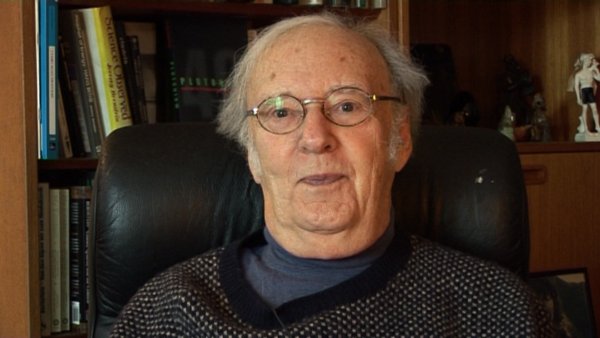NEXT STORY

'Co-writing' a paper with TD Lee
RELATED STORIES

NEXT STORY

'Co-writing' a paper with TD Lee
RELATED STORIES


|
Views | Duration | |
|---|---|---|---|
| 41. I re-tooled | 391 | 02:29 | |
| 42. 'Co-writing' a paper with TD Lee | 1 | 616 | 04:15 |
| 43. 'You are a nice boy, but Lee and Yang are crooks' | 734 | 03:20 | |
| 44. Reading Proust | 1 | 475 | 04:19 |
| 45. 'Stick with me kid, I'll put you on Broadway' | 364 | 00:54 | |
| 46. David Ben-Gurion's prediction | 377 | 01:49 | |
| 47. 'It's not a good idea to get lost in Israel' | 357 | 00:38 | |
| 48. Brookhaven National Lab: 'I was pretty unhappy' | 387 | 00:59 | |
| 49. How I started writing for The New Yorker | 356 | 03:56 | |
| 50. My first visit to The New Yorker offices | 339 | 01:14 |


I was very used to working independently so the fact that nobody was going to give me any guidance didn't especially bother me. Nobody had given me any guidance while I was the house theorist at the cyclotron at Harvard. So that was fine. But it was also clear to me that I had to retool because I had been working at Harvard on this electron scattering from particles… experiments done by Hofstadter at Stanford, and what was of interest now were the weak interactions - the beta decays and things - because of some work that had been done by Lee and Yang having to do with the non-conservation of parity. And that was the… that was the subject matter that was of interest.
There was also a small group there very, very high-powered people who, as far as I could see, were trying to kill quantum field theory by forcing it to be rigorous, which it wasn't. Marvellous people. I met… [unclear] Res Jost, who was a Swiss physicist. A very funny character, we became good friends. And I was once coming out of the cafeteria and Jost and Lehmann, who were two of the people… they were called the [sic], the Field Union and they were trying to kill quantum field theory. And they were laughing and laughing, and I said to Jost, 'You're laughing,' Jost said, 'We are laughing, but inside we are very sad,' said Jost to me. I was very fond of Jost.
So I retooled, and I learned... learned about the weak interactions and parity non-conservation, and Lee and Yang were there. They won the Nobel Prize that Fall. We very junior people were not invited to the Nobel Prize celebration. That bothered me slightly but it bothered my office mate terribly. He was an Italian named Morpurgo and he was very upset that he wasn't invited, and he kept saying to me, 'I can feast the Nobel Prize.' But he was not allowed to feast the Nobel Prize.
Born in 1929, Jeremy Bernstein is an American physicist, educator and writer known for the clarity of his writing for the lay reader on the major issues of modern physics. After graduating from Harvard University, Bernstein worked at Harvard and at the Institute of Advanced Studies at Princeton. In 1962 he became an Associate Professor of Physics at New York University, and later a Professor of Physics at Stevens Institute of Technology in Hoboken, a position he continues to hold. He was also on the staff of The New Yorker magazine.
Title: I re-tooled
Listeners: Christopher Sykes
Christopher Sykes is an independent documentary producer who has made a number of films about science and scientists for BBC TV, Channel Four, and PBS.
Tags: Harvard Cyclotron Laboratory, Stanford University, Chen Ning Yang, Tsung-Dao Lee, Ray Justus, Mario Morpurgo
Duration: 2 minutes, 29 seconds
Date story recorded: 15th June 2011
Date story went live: 08 September 2011